- Home
- City Rescue Pets Interviews
- Katie Cleary
Interview with Katie Cleary - Animal Activist in Wild Animal Conservation
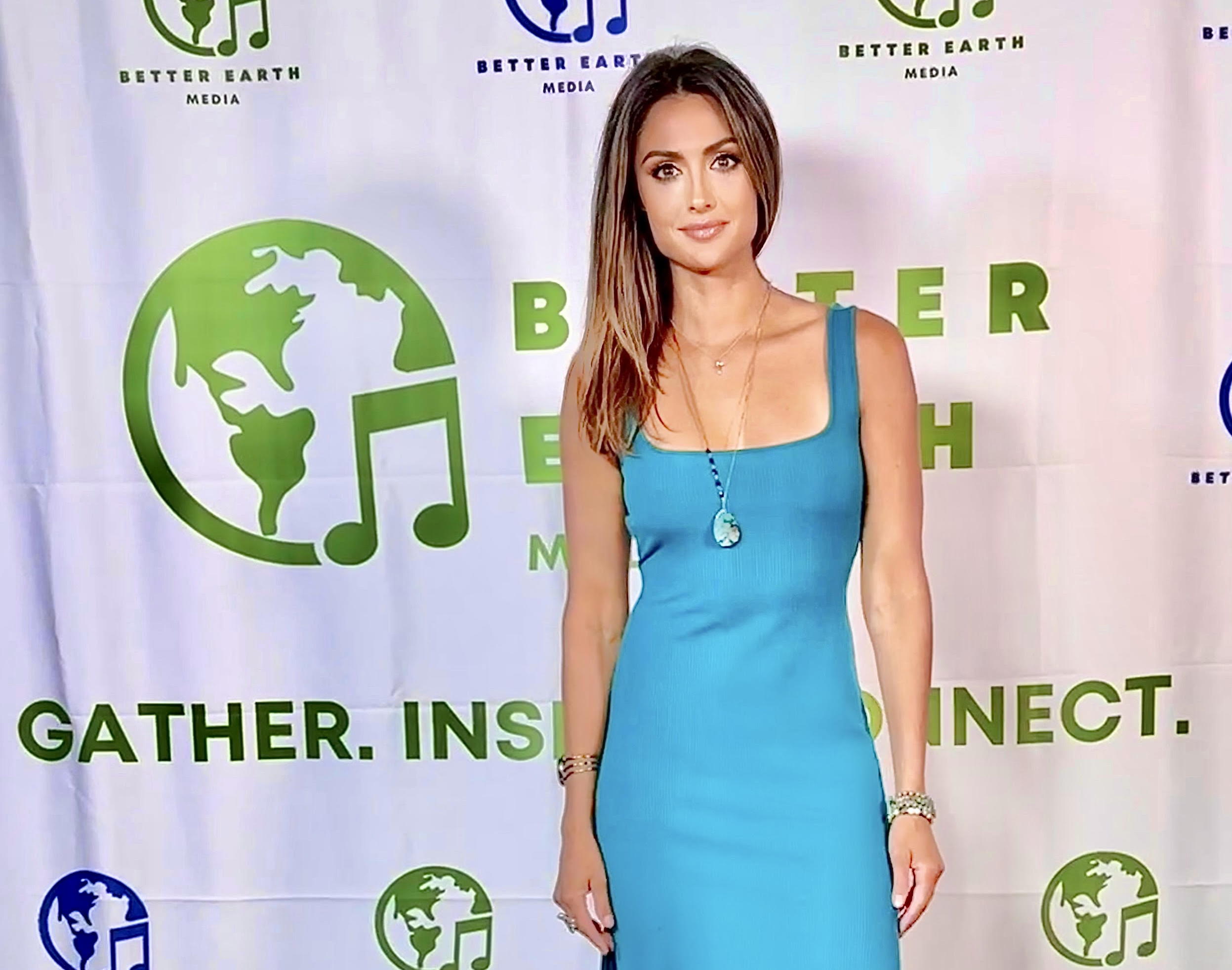
Katie Cleary is an actress, model, film producer, and lifelong animal activist.
She founded the nonprofit Peace4Animals, which seeks to protect wildlife and has had several successful legislative initiatives in California.
She also started World Animal News to bring news from the Animal Welfare Community into the mainstream.
She has produced two documentaries about protecting wildlife and is working on another one.
I had the pleasure to speak with Katie about her life and work.
I Asked Her About What Got Her Started in Animal Activism
 Photo provided by Katie Cleary
Photo provided by Katie ClearyKatie: I grew up in Chicago and my mom was a huge animal lover and my dad as well, so it was just in my blood.
I would rescue all types of animals. We had a family vet that we would take these wild animals to. Whether it was a baby fawn that we found in our yard, or squirrels that had fallen out of a nest, baby birds, and even kittens and puppies.
I loved big cats growing up and so my mom would give me these encyclopedia books about all these big cats and beautiful pictures of all the exotic cats - the Servals, the ocelots, the lions, leopards, you name it - cheetahs.
I thought they were such beautiful cats but they're so misunderstood. We can't protect their critical habitat so there's no hope for these big cats in the wild.
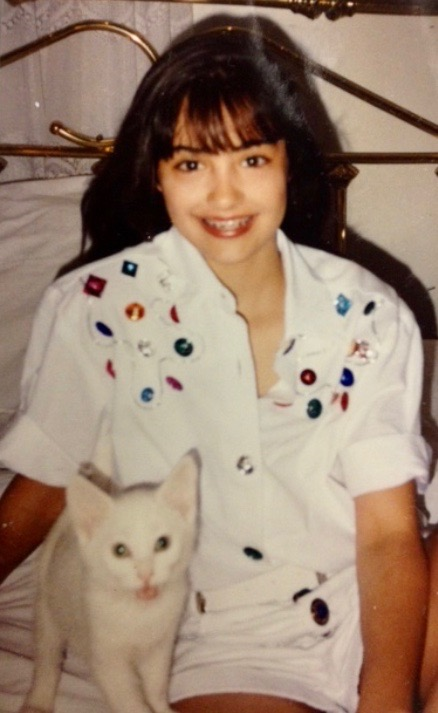 Photo provided by Katie Cleary
Photo provided by Katie ClearyI love all animals but it really began with the big cats, both the wildlife and endangered species.
I would say that for some reason that is my calling.
People ask me what about the farm animals, what about other animals…Yeah, I love all animals, don't get me wrong, but there is something about endangered species, specifically in Africa.
I feel like that's where I have to put most of my focus.
She Started Using the Money She Made to Help Fund Animal Activism
 Photo provided by Katie Cleary
Photo provided by Katie ClearyI was working in entertainment for a very long time, since I was 11 years old.
I thought, I feel like I'm not accomplishing my mission on this Earth. What I need to do is to raise awareness for animals.
it really started with the fact that 2500 Tigers were left in the wild when I was a child. Now the population doubled, but it's still, I believe, not sufficient to recover the species.
So we really have to focus on the conservation of the species. I mean 5000 is still not enough.
When I founded Peace4Animals and World Animal News I had no donations coming in so I was the one who was funding it through the acting, through the modeling, through the hosting and it wasn't easy.
I would go to auditions and I thought, gosh, if I could land this job that would really help me with my animal activism projects.
Peace4Animals Started With Tiger Conservation
 Photo provided by Katie Cleary
Photo provided by Katie ClearyAt a young age, I found out there were 2500 Tigers left and I was just horrified at those numbers. I thought, okay, we have to do something.
I started the foundation when I was 30.
I just thought let's start with tiger conservation. I contacted Born Free USA and they partnered with me.
We did a tiger conservation project in India and raised money for the Bengal tigers.
So that's how it all started. We graduated to elephants, rhinos, orangutans, and documentaries.
Palm Oil and Orangutans
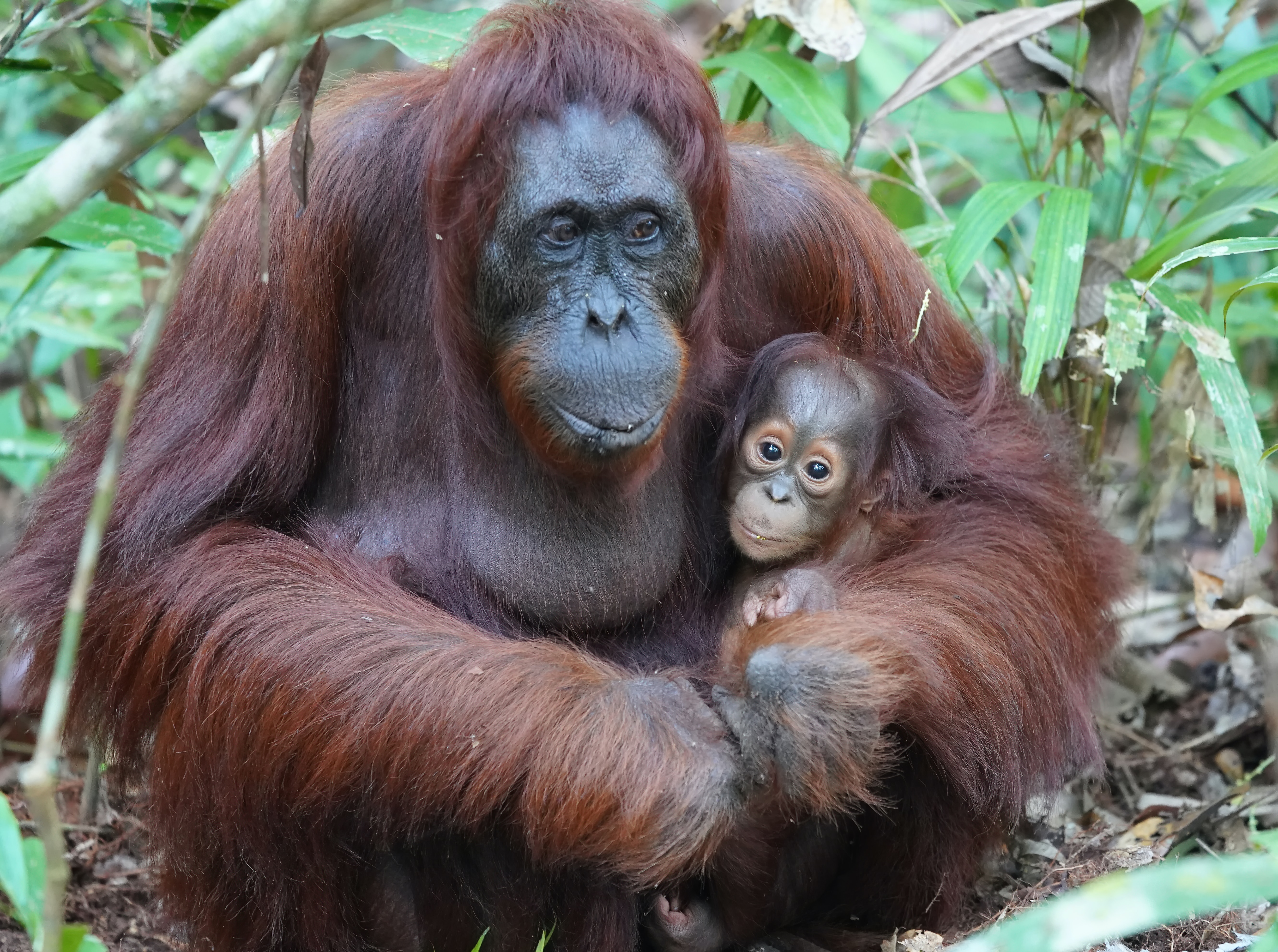 Photo by Bob Brewer https://unsplash.com/photos/8_5sEk7Ay18
Photo by Bob Brewer https://unsplash.com/photos/8_5sEk7Ay18We had an anti-palm oil campaign that was one of our first campaigns, along with the tiger conservation campaign.
Palm oil is destroying the rainforest, not only in Costa Rica but Indonesia, Sumatra, and Borneo.
They're clearing football fields sized pieces of land which are critical primary rainforest habitats of orangutans every half an hour. Orangutans are critically endangered as a result.
There are now these little corridors that are the only thing that's connecting one species to another or one genetically diverse species to another as far as trying to get those genetics and diversify them so they're not inbreeding.
So if we can't connect these, if the habitat's destroyed because of the palm oil, it's going to lead to the destruction and the extinction of orangutans if we don't do something.
Palm oil is in 50 percent of all products that we consume in the grocery store. It's in cookies, it's in lotions, it's in shampoos…It's just a very cheap oil that is literally destroying critical primary rainforest habitats around the world.
Katie Cleary Used Her Filmmaking Talents to Make a Documentary
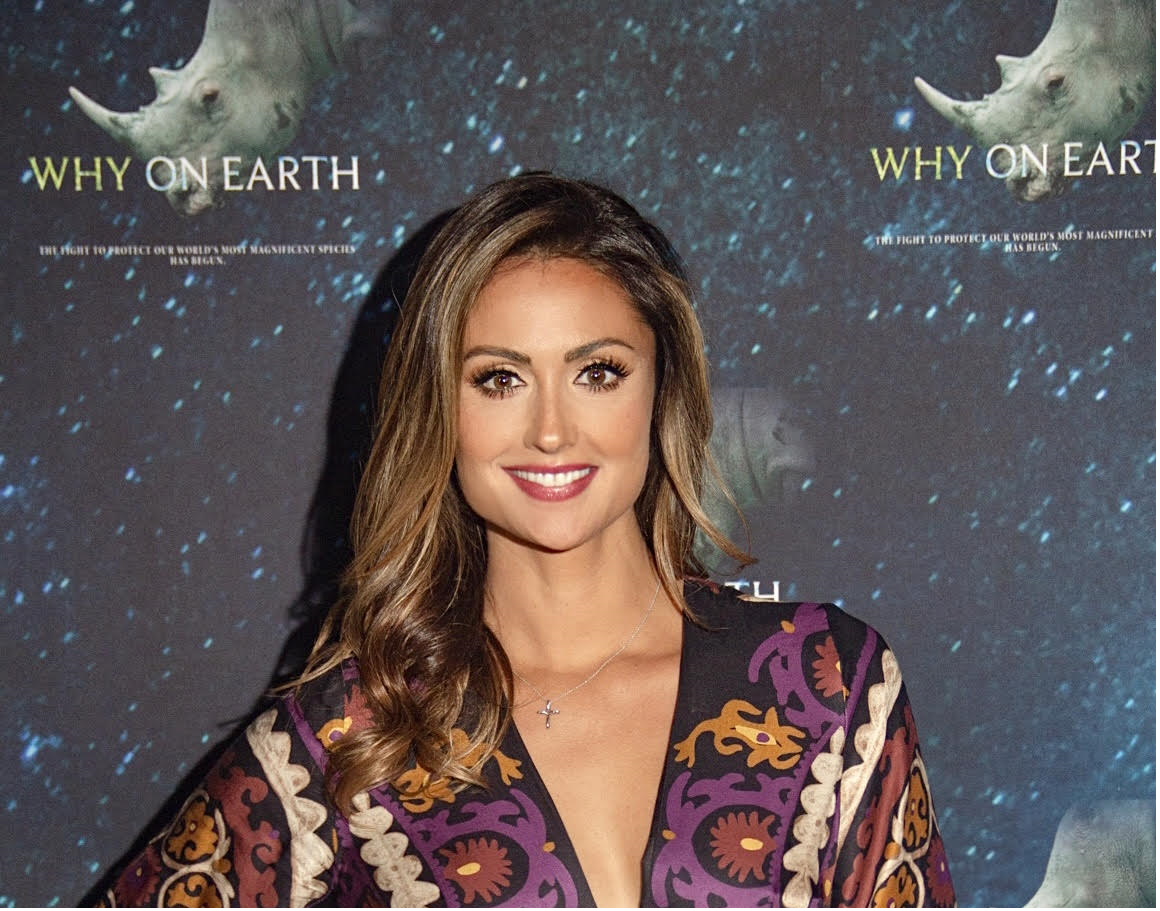 Photo provided by Katie Cleary
Photo provided by Katie ClearyGive Me Shelter was a shot in the dark. I had never produced a documentary or directed a documentary but I've been on many sets and have seen the filmmaking process.
So I thought, let me use some residuals I gathered over seven years for a commercial that was airing for a very long time.
I thought I needed to do something that would really create an impact for animals. Instead of just having these residuals sit there, I used them to produce Give Me Shelter.
I started calling my friends to see who can help me.
I called my best friend Kristen Rizzo and I said do you want to direct this documentary about animals? And she said sure. And I said do you want to move to Los Angeles? She said yeah. She got on a plane two weeks later and she moved to LA.
You know when you have a calling and a mission. You really have to listen to that. I truly believe that.
There's so much noise going around with social media and the news and everything that we get thrown at us every day. I feel like we have to connect with nature and we reconnect with animals and then this is one way I was able to do that.
Give Me Shelter came out on Netflix in 2015.
I proved myself with that film. People started noticing my work. They thought: let's support her, let's see how we can help her. She's doing this all on her own.
Perils of the Pet Trade and World Wildlife News
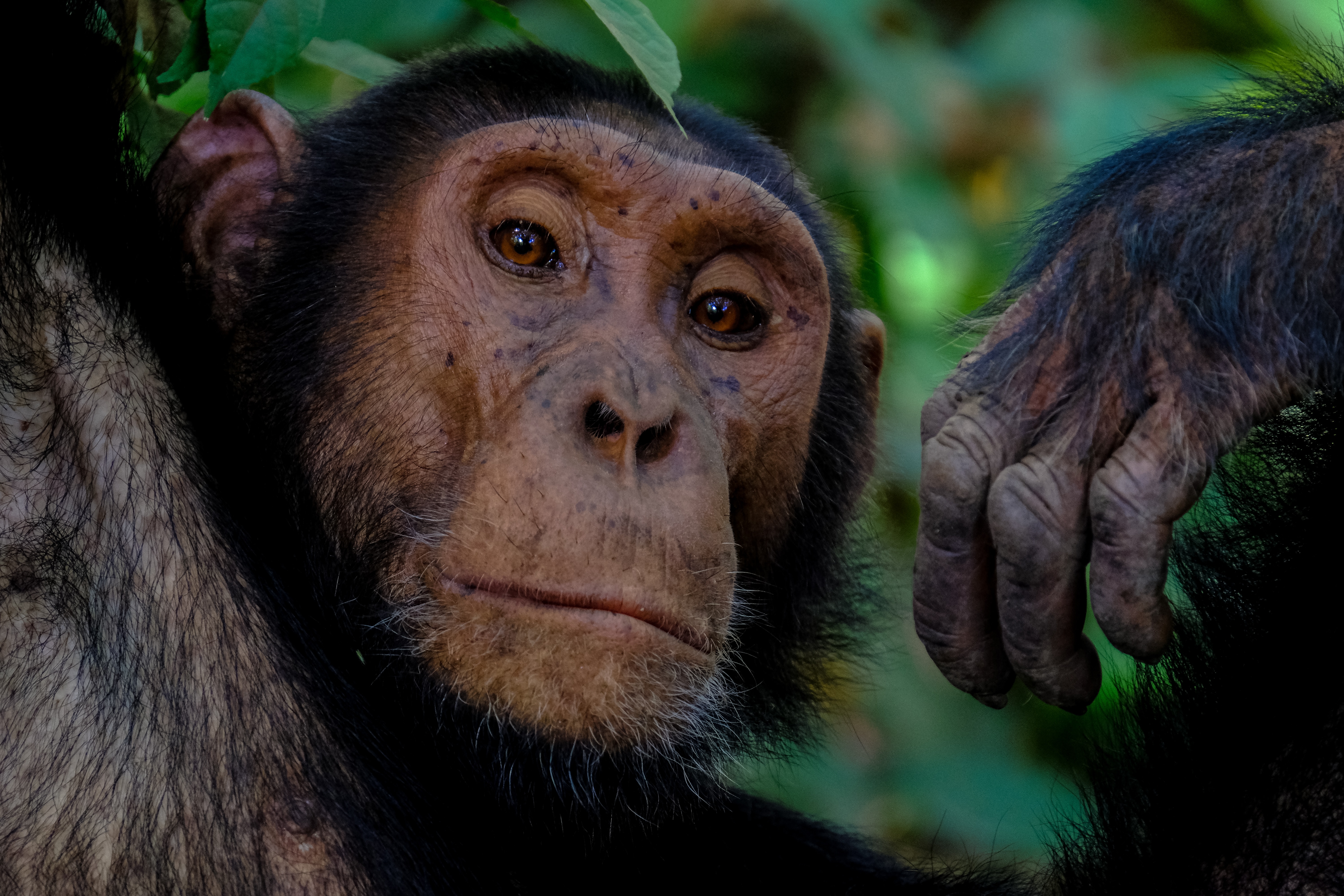 Photo by Francesco Ungaro on Unsplash https://unsplash.com/photos/O4A-zGH8u-Y
Photo by Francesco Ungaro on Unsplash https://unsplash.com/photos/O4A-zGH8u-YThe wildlife trade - I think it’s third or fourth behind illegal arms, drugs, and child and sex trafficking. It's a billion-dollar industry.
I think Customs are involved, people are getting paid off in the airlines and I believe government officials are involved because it's such a big business.
These animals are being stolen from the wild. Their mothers and fathers are being killed. These babies are being trafficked just like human babies and they're being sold to the illegal wildlife trade.
It’s a billion-dollar industry and it needs to end.
We've helped a lot of organizations on the ground save animals, typically chimpanzees.
I mentioned that I can imagine that many people think chimpanzees are very cute, so they buy one and then realize that the chimp is more than they can handle.
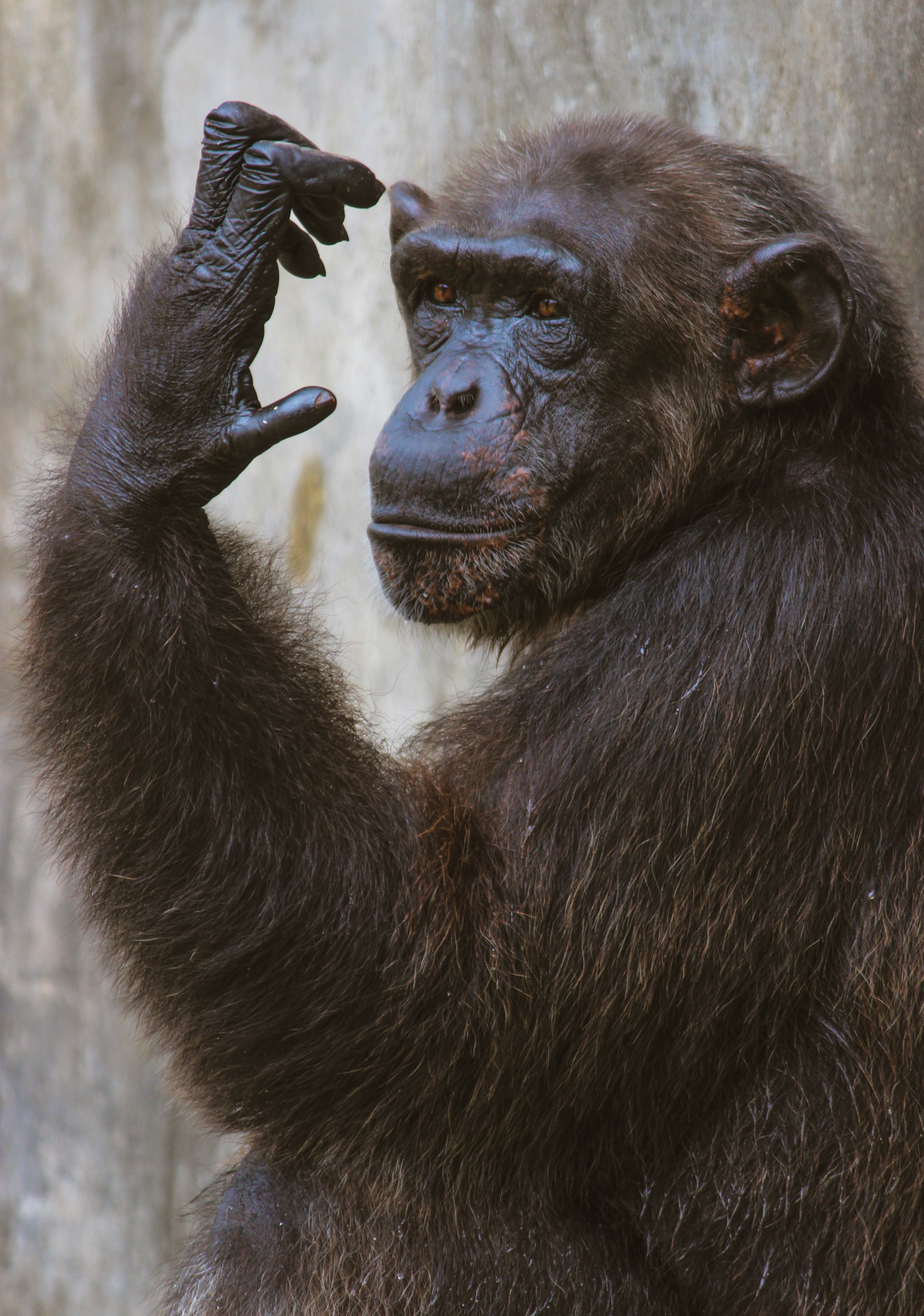 Photo by Ishara Kasthuriarachchi: https://www.pexels.com/photo/close-up-of-chimpanzee-17986579/
Photo by Ishara Kasthuriarachchi: https://www.pexels.com/photo/close-up-of-chimpanzee-17986579/Katie: Yes, they end up in the wrong hands or a zoo. They're confiscated a lot in Africa and in Indonesia. It's just something that needs to be brought to light. I think we'll put a stop to it.
That's why I founded the news network - World Animal News. We know what's going on, the Animal Welfare Community knows what's going on, but the rest of the world doesn't so I thought we have to create a mainstream news channel on a global scale to get this to the masses so we can really create effective change every day and work towards that.
People want to help, they just need to know what’s going on.
Ecotourism
 Photo provided by Katie Cleary
Photo provided by Katie ClearyDuring the pandemic, unfortunately, there weren't enough eyes on the ground so I think that right now it's critical to go and visit these countries.
Whether it's checking with orangutans in Indonesia, whether it's going to see elephants and rhinos in the David Sheldrick Wildlife Trust, which is one of the largest elephant sanctuaries in the world, and visiting them.
Contributing your tourism dollars to those places that help to protect animals and the national parks is important. You can go to the Congo and see the mountain gorillas - that is an unforgettable experience.
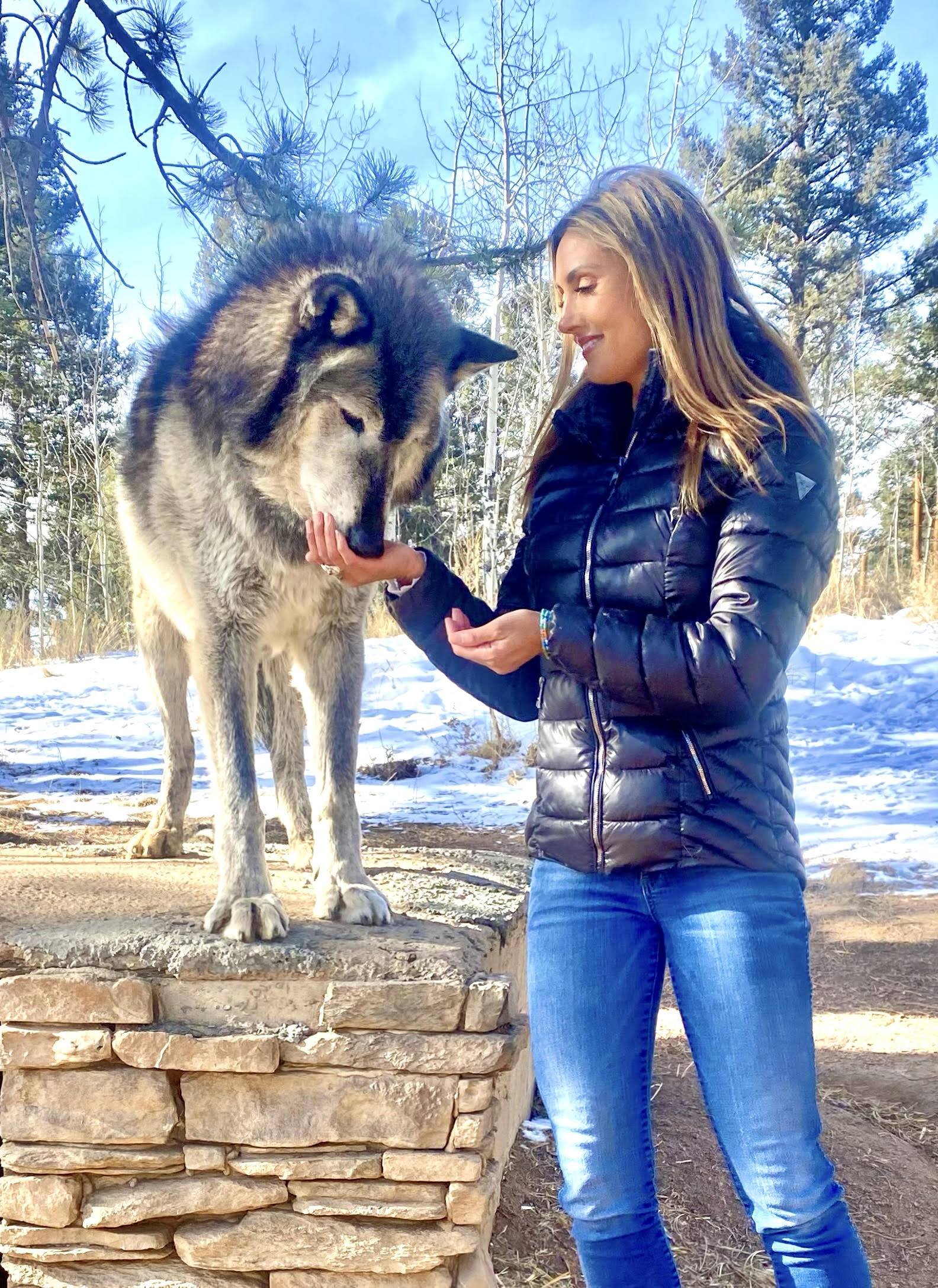 Photo provided by Katie Cleary
Photo provided by Katie ClearyEven go to Yellowstone and see the wolves in person.
You really vote with your dollar and I think that's critical because these countries see the numbers, they see how many tourists are coming in and what they're coming in to do.
It's important because we won't have any national parks left and therefore no habitat for these animals if we don't start voting with our dollars
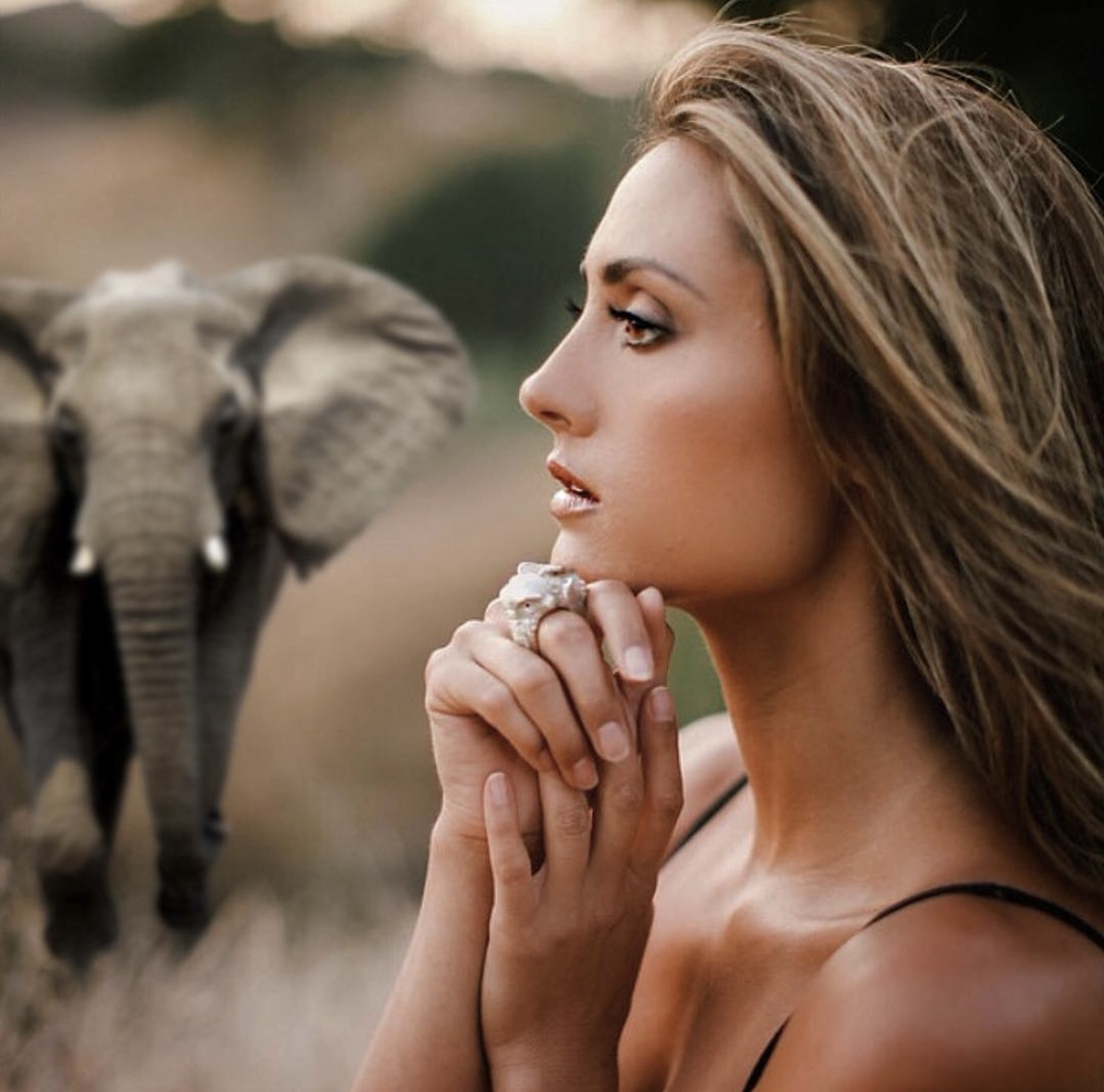 Photo provided by Katie Cleary
Photo provided by Katie ClearyPeople still like to go hunting, specifically trophy hunting. In South Africa it's legal and they pay 25,000 to 50,000 dollars to shoot a lion. It's happening illegally as well.
You would never think but Florida has a lot of commercial hunting facilities. People don't really know about it but with Safari Club International leading the way and they have lobbyists and they fight all the legislation that we've put forth.
It's really a shame that it's a small minority of people but they have a lot of money and they fight the Animal Welfare Community like I've never seen.
So there's a way of combating that by traveling yourself to visit sanctuaries and taking videos.
Whether you're in Thailand and visiting Elephant Nature Park, which is an amazing place, or the largest rhino sanctuary in South Africa, taking videos and showing people - wow, you can actually visit these amazing countries! It's not expensive to do so!
You can also volunteer to help these foundations and these animals and raise funds. A lot of people just don't know how to help. They don't know where their money is going to. They want to be hands-on and help these animals in a Sanctuary or the natural habitat.
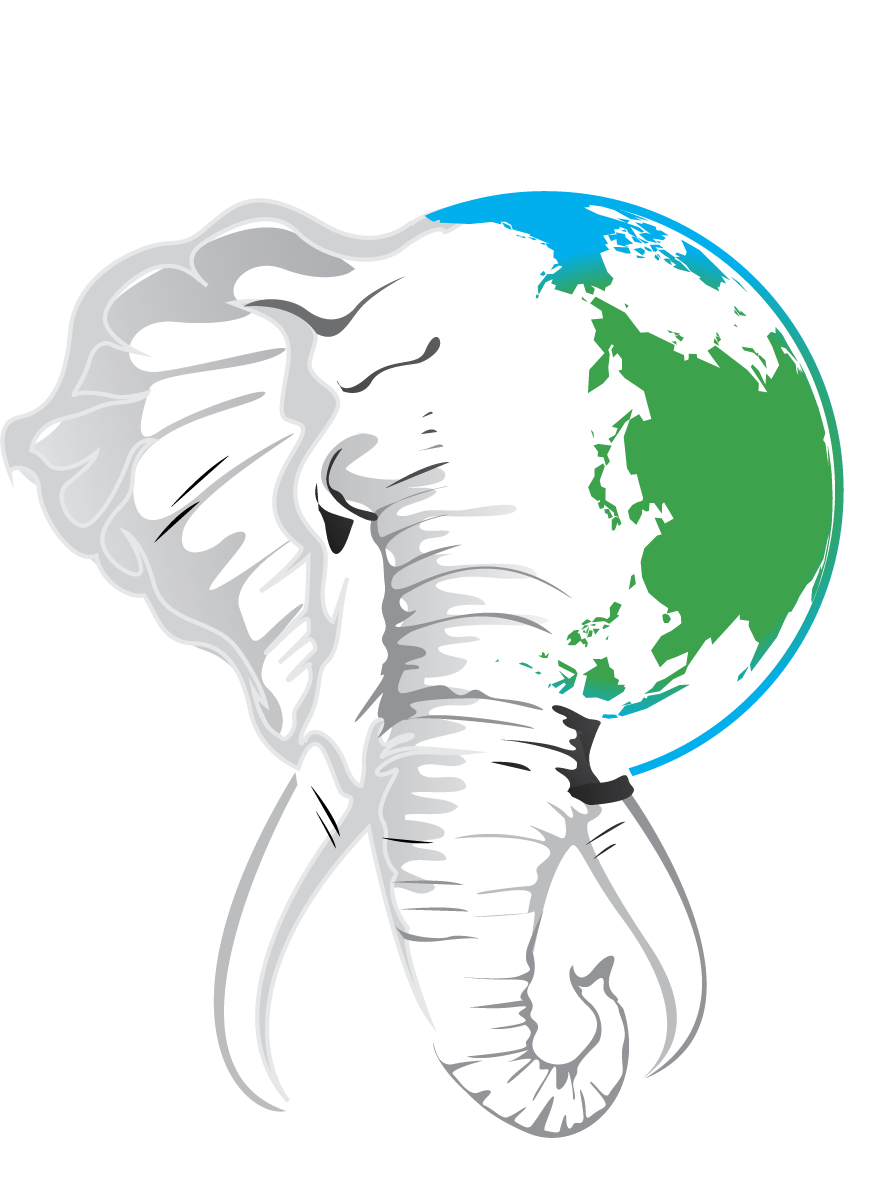 https://worldanimalnews.com/
https://worldanimalnews.com/I asked Katie what was new in World Animal News right now:
Oh my gosh! Well, Global Conservation Force, which is an amazing organization, just launched a 15-million-dollar initiative today to protect our national parks.
That means anti-poaching, surveillance, and protecting their rainforest habitat.
It's over 100 national parks worldwide.
So 15 million more dollars will do a lot of good to help protect not just the critical habitat, but the endangered species as well.
So that was today! Every day we have one, two, sometimes three stories.
Plant-Based Diets Help Animals
 Photo provided by Katie Cleary
Photo provided by Katie ClearyI think that the growing plant-based movement will help so many, not only farm animals (billions of animals a year that we consume) but also wild animals all around the world.
A lot of these endangered species have hardly anything to eat, let alone any habitat left so if you're grazing cattle on public lands, the wild animals are going to go after cattle.
Then the cattle rancher is going to go and shoot and kill that big cat or that wolf. They had nothing to eat and we're taking their habitat.
We're grazing cattle on public lands, we're polluting our environment, and all for a moment of satisfaction for a burger when you have so many alternatives. It doesn't really make sense.
So I would say try to incorporate more plants and plant-based options and eventually, build to plant-based 100 percent.
More From Katie
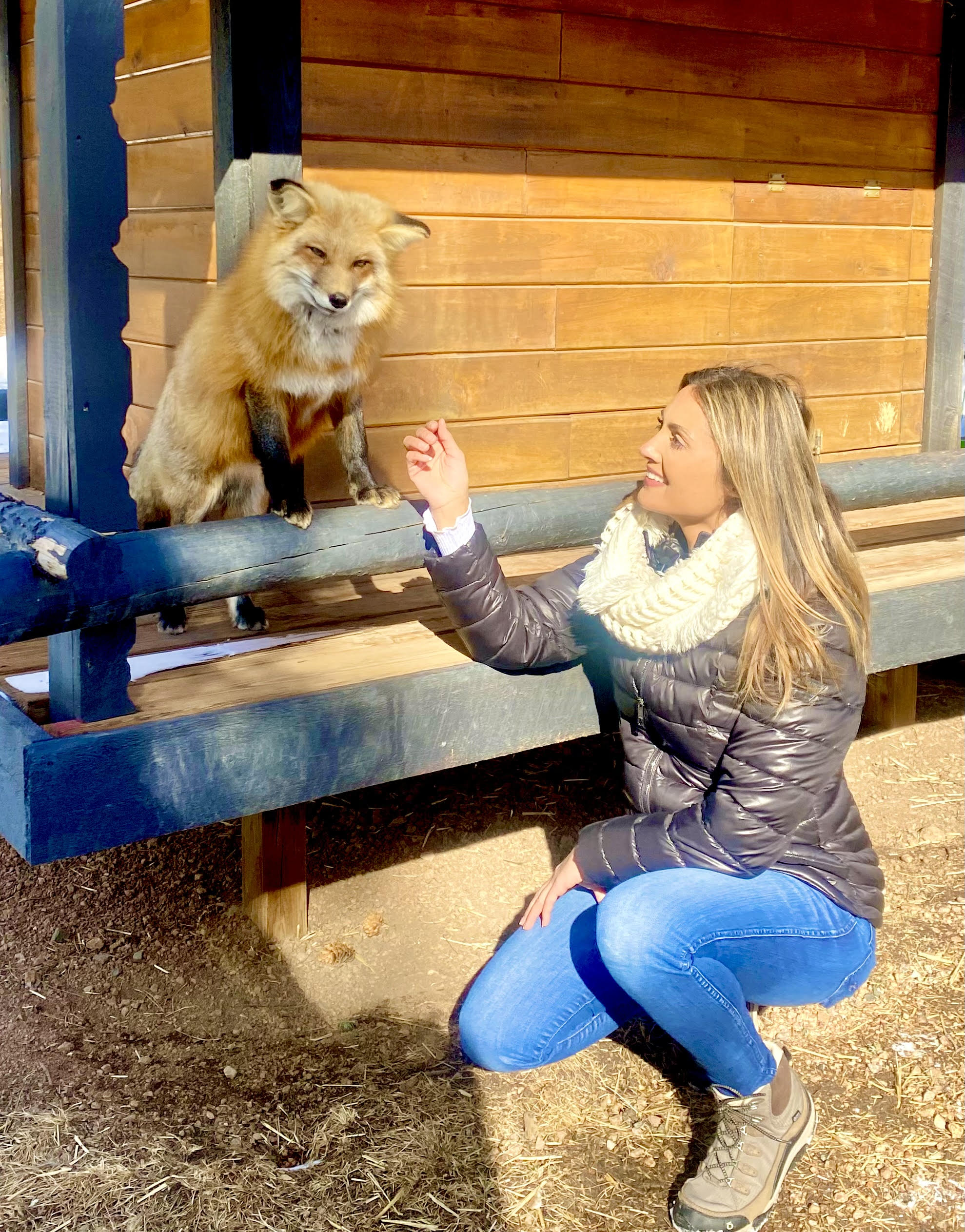 Photo provided by Katie Cleary
Photo provided by Katie ClearyYou can watch Give Me Shelter on Pluto TV. Katie’s first film is about rescuing pets in the US.
Her second film, Why on Earth can be seen on freevee.
She is currently working on a documentary about wolves, so look out for that in the future.
In the meantime, check out World Animal News to get the latest information about animal welfare and rescue.
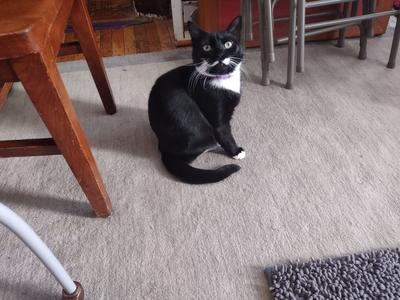
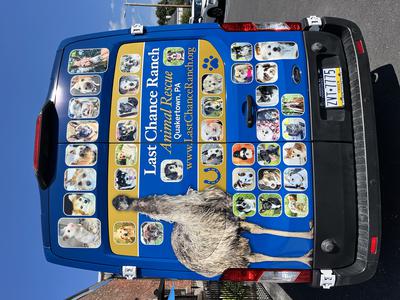

New! Comments
Have your say about what you just read! Leave me a comment in the box below.